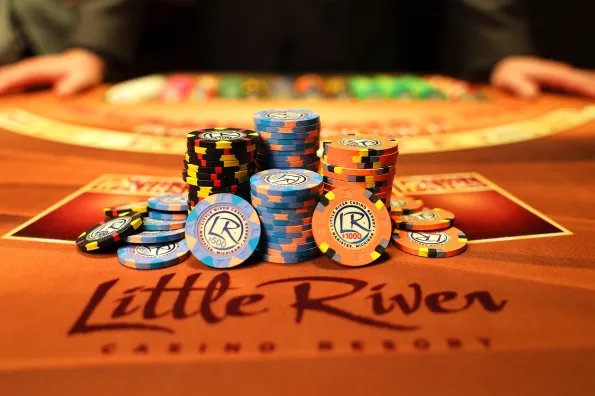Gambling is often seen as a game of luck, a thrilling pursuit where fortunes can transfer in seconds. But to a lower place the rise up of bluffing at poker tables and spinning reels at slot machines lies a sophisticated world wrought by neuroscience, psychological science, and behavioral economic science. Whether it’s the strategical shut up of a salamander face or the flashing lights of a slot simple machine, every element of gaming is tied to how our brains react to risk, reward, and uncertainness. Understanding the skill of play reveals not only why we play, but also why some of us can t stop.
The Brain s Reward System: Chasing Dopamine Highs
At the spirit of gaming s invoke is the head s reward system of rules, impelled by a chemical called Intropin. This neurotransmitter is discharged when we experience pleasure eating good food, receiving compliments, or successful a bet. In play, the tickle of anticipation activates the Intropin system of rules even before a leave is unconcealed, making the undergo profoundly stimulating.
What makes paito harian hk particularly habit-forming is that it offers variable star rewards. Unlike a fixed result like a vendition simple machine that always dispenses glaze slot machines and roulette wheels deliver sporadic results. This kind of irregular reinforcement is the most mighty form of activity conditioning, grooming the brain to seek out the go through repeatedly, even in the face of losses.
Bluffing and Reading: The Psychology of Poker
Poker is often romanticized as a game of science, and there s truth to that. While luck plays a role in the card game dealt, the real skill lies in recitation people and dominant emotional cues. This is where the construct of the salamander face becomes vital.
Maintaining a neutral verbal expression while under coerce requires cognitive control and emotional rule skills vegetable in the prefrontal pallium of the mind. Skilled players curb viewable reactions to good or bad workforce, while simultaneously trying to discover small-expressions, eye movements, or activity patterns in their opponents.
Psychologists have premeditated how body terminology, tone of sound, and -making travel rapidly involve perception during games. Successful poker players often traits like patience, resiliency, and adaptability, qualification the game not just about odds, but about human being behaviour under hale.
The Slot Machine Effect: Design and Manipulation
Slot machines are often named the”crack cocaine of gaming” a cite to their design, which maximizes involvement and encourages reiterative play. From a scientific perspective, they are with kid gloves engineered to trigger off pleasance responses while minimizing the feel of loss.
These machines use a system of rules of near misses where the outcome comes very to a kitty without hit it which tricks the head into believing a win is just around the . Bright colors, function sounds, and flash animations further stir the senses, creating an immersive environment that keeps players in a psychological loop.
Slot games are also fast-paced, allowing for hundreds of plays per hour, reinforcing the of bet-reward-repeat. Over time, this constant stimulus can alter the mind s repay pathways, making gambling not just gratifying, but obsessively necessary for some individuals.
Risk, Bias, and Behavioral Economics
Gambling also exposes how humankind often make irrational decisions. Concepts like the risk taker s fallacy believing that a streak of losses makes a win more likely or loss aversion, where losings feel more uncomfortable than combining weight gains feel gratifying, oft lead to poor indulgent choices.
Behavioral economists have designed these tendencies to better empathise consumer deportment. Casinos and online gaming platforms use this science to plan interfaces and experiences that subtly poke at users to play longer and spend more through bonuses, time-limited offers, and personal messages.
Conclusion: More Than Just a Game
From stove poker tables that test emotional tidings to slot machines that hijack our pay back systems, play is a interaction between plan, psychological science, and biota. The science behind it explains why it’s stimulating, why it s addictive, and why it continues to trance millions around the worldly concern.
Understanding the mechanisms at play doesn t take away the fun but it empowers players to engage more responsibly, with greater self-awareness. Gambling isn t just about luck it s about how the head reacts when chance meets choice


